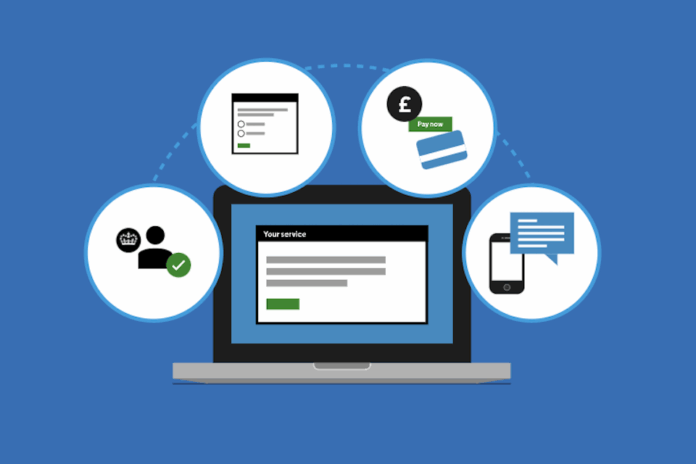Ever launched a digital service in a new market and thought, Wait, why is everything suddenly complicated? Yeah. Been there. What looks like a green light can turn into a maze of silent roadblocks. Not because the tech doesn’t work—but because rules no one warned you about come out of nowhere.
Governments aren’t always upfront about what they expect. Platforms get hit by compliance demands long after launching. And when you’ve already onboarded users, changes become expensive, stressful, and—sometimes—public.
Let’s break down where things go sideways and how to get ahead of it.
Key Highlights
- Local regulations can apply to platforms even without physical presence.
- Government documentation often requires in-market translation and attestation.
- Visa, work permit, and platform registration may tie together in some markets.
- Fines for non-compliance can be issued retroactively.
- Some countries demand local servers, local partners, or public disclosures.
- PRO Services in Saudi Arabia help smooth the process before it gets messy.
Rule One: What You Don’t Know Will Cost You

Nobody prints a list of all the rules that apply to digital platforms. It’s never that easy. You assume your product just needs a local language option and good UX, and then boom—some official sends an email saying your platform violates XYZ regulation.
It starts subtle. Maybe a missing license. Maybe a document that wasn’t registered with the right ministry. Suddenly, your payment processor pauses transactions. Or your ads get pulled. Or worse—your whole service gets geo-blocked.
Some countries tie digital compliance to labor laws or immigration, too. That’s where it gets tangled. If your remote team isn’t listed properly, or your local rep doesn’t have the right credentials, authorities might freeze operations, even if your platform is fully virtual.
Setting Up in the Gulf? Read This First
I’ll give you a real-world example. Saudi Arabia is growing fast in tech—but if you’re setting up anything digital there, don’t assume it works like the EU or U.S.
You need to register employees properly. You’ll need to issue iqamas, manage visa renewals, and stay on top of document translation and government filing. One mistake with a Ministry submission, and you’re chasing approvals for months.
That’s where GRO services in Saudi Arabia come in. AstroLabs has a dedicated government relations team that handles all those bureaucratic details—from processing official paperwork to keeping your setup in line with changing rules. If you’re serious about operating in the region without losing sleep over every government form, this is the smartest place to start.
Hidden Licensing Rules That Catch Platforms Off Guard
Sometimes it’s not even about being legal—it’s about being listed. Countries often require platforms to:
- Register with media or telecom authorities.
- Submit encryption disclosures if offering messaging or secure file transfer.
- Obtain approval from banking or financial regulators if any money moves through the app.
- Report user data handling if local data sovereignty laws apply.
No one sends you a checklist. You have to figure it out piecemeal, and if you miss a detail, it’s all on you.
And here’s the kicker—some regulations aren’t enforced until you grow. You might run silently for six months, then get flagged once you cross a certain user threshold.
Data Storage, Local Servers, and Other Sneaky Expectations

Local data storage rules are growing, especially across the Middle East, Asia, and Africa. If your user base is in one of those regions, there’s a good chance someone will eventually ask where your servers are. And if they’re not local? That’s a problem.
Your privacy policy and backend system may be completely legit by your home country’s standards. But if the host country expects user data to stay within borders, and it doesn’t—you’re in violation.
Also, check if your platform needs a data officer listed locally. Some countries want a named compliance person with a domestic address who can respond to user or government complaints.
Penalties Hit Hard—and Often Later
Here’s where things really sting. Some digital service platforms don’t hear a word about violations until long after launch. You get a warning. Then fines. Then operational limitations.
You may be ordered to suspend ads. Or delist part of your platform. Or worse—be blacklisted entirely.
By that point, your growth stops cold. You lose customer trust. You lose investor confidence. And you lose momentum you probably spent months (or years) building.
Fixing It Is Harder Than Starting Right
Getting in front of regulation is always easier than fixing mistakes later. Once you’re flagged, you enter the slow lane. You now have to justify your existence to bureaucrats. Sometimes publicly.
If you’re already operational and only now discovering gaps, do a full internal audit:
- Review local laws tied to your platform category
- Evaluate visa and employment rules for any in-country team
- Assess where user data is stored and who controls access
- Consult a local legal or PRO firm to align documentation
Don’t count on an apology working with regulators. Show compliance or risk being shut out.
How to Future-Proof Your Digital Launch

You won’t find all the rules online. That’s just the reality. But there are smart ways to prepare before a crisis hits.
- Start with legal mapping. List all activities your platform performs, from data collection to payments to ads. Map each function to local regulatory areas: telecom, finance, labor, media, data.
- Hire or partner locally. It’s not just helpful—it’s strategic. Local consultants know who to talk to and what to avoid.
- Use PRO services. They’re built for this. Especially in the Gulf. They keep your filings, renewals, and registrations tidy and legit.
- Ask for more than answers. Ask for timelines, standard processing delays, rejection rates, and what triggers audits. That’s the level of info that saves you.
Rules Are Not Suggestions
If your platform serves real users in a market, expect to be treated like a local business. The digital world might feel borderless, but regulators don’t think that way.
Don’t wait for someone to report you or for a system to glitch. Get ahead of it. Know the rules. Document your compliance. Use partners who know the ropes.
Especially in fast-growing regions like Saudi Arabia, skipping over admin work just isn’t worth it. You can’t afford to move fast and break things—not when the thing that breaks is your right to operate at all.
And honestly? Fixing it once you’re in trouble takes three times longer than preparing the right way from day one. Trust me on that.







